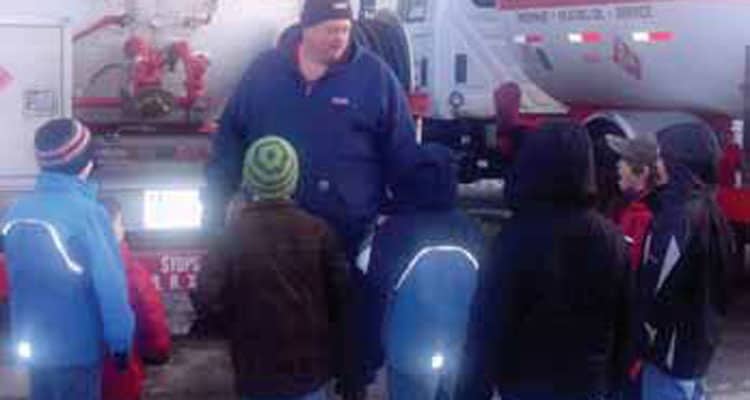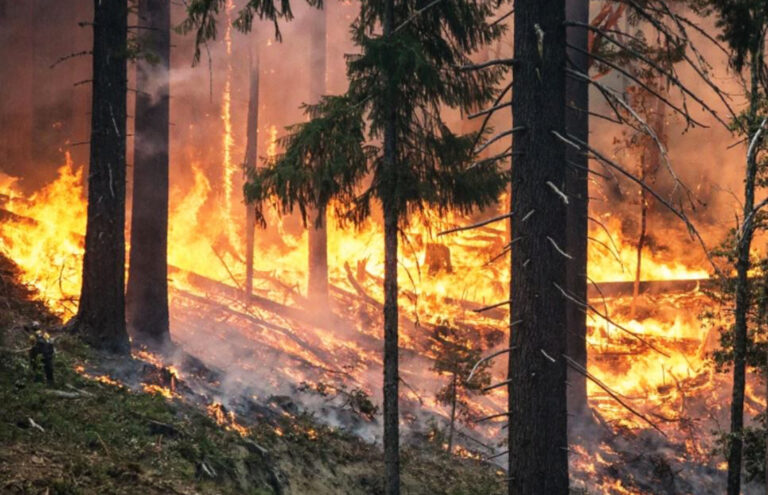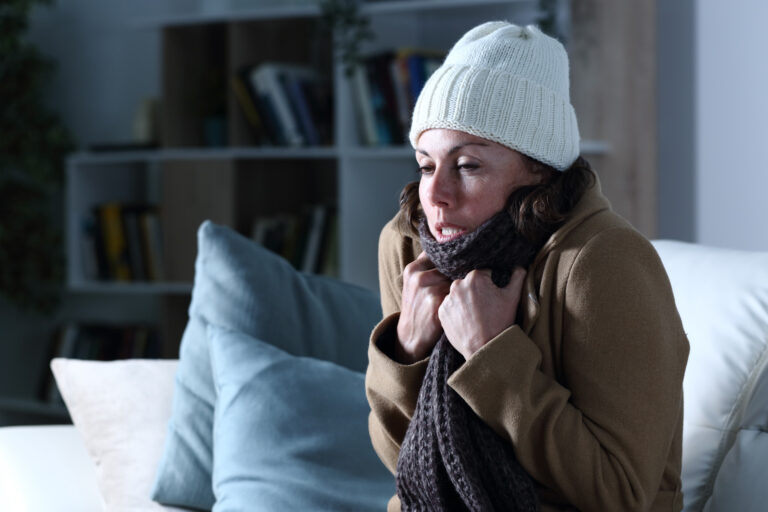10 Tips to Keep Your Propane-Powered Home Safe During a Flood
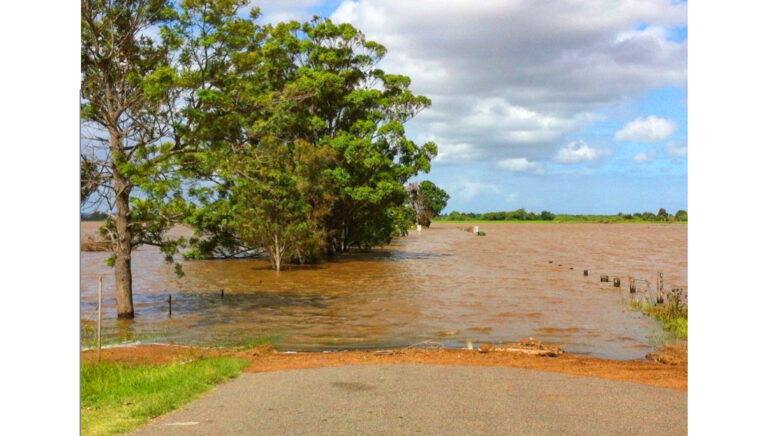
Floods can occur anywhere during any season of the year. While some floods can take days to develop, others — such as flash floods — can occur in minutes.
According to the National Weather Service, over 140 deaths per year are caused by flash floods and floods that are associated with thunderstorms. Each year, floods cause an average of $4.6 billion in damage to homes and businesses.
If your home uses propane, there are a few simple steps you can take to keep your family safe and avoid potential dangers.
- Create an emergency preparedness plan and review it with everyone in your family. Post a list with contact information for your propane supplier and emergency services (fire department, etc.) along with instructions for turning off propane, electricity, and water. If you do need to turn off your propane, contact a service technician to inspect your propane system prior to turning it back on.
- In flood zone areas, make sure your large above-ground and underground propane tanks are anchored securely to avoid potentially dangerous situations. The National Fire Protection Agency (NFPA) requires that you do this. Contact your propane supplier for more information.
- Have an adequate supply of propane in your tank. During and after a major flood, propane and other types of fuel may not be readily available and roads leading to your home or farm might not be accessible for delivery.
- In the event that a flood threatens your safety, you should shut off the gas. Turn off the main gas supply valve on your propane tank, if it is safe to do so. To close the valve, turn it to the right (clockwise). Also, it’s a good idea to turn off the gas supply valves located near individual indoor appliances. You may have to evacuate your property or move to a higher level within your home.
- Listen to your local authorities, or television and radio stations to determine if you need to evacuate your home or farm. If you do evacuate, use extreme caution when returning to your property. If you have any doubts about your safety, leave the area immediately and have your property inspected by a qualified building inspector or structural engineer before re-entering.
- After the flood danger passes and it is safe to do so, check the entire area for downed power lines, damaged gas lines, or damage to your propane tank. Floods can move, shift, or damage gas lines and tanks. If it is dark, use flashlights, not candles. Immediately call your local utility company or propane supplier if any of these hazards exist. Do not attempt repairs yourself. If you find a propane tank on your property that is not yours, or if your propane tank has become dislodged or is missing, contact your propane supplier or your local fire department immediately.
- Never use outdoor propane appliances indoors or in enclosed areas, particularly during a power outage. This can result in carbon monoxide poisoning or death. These include such appliances as outdoor portable heaters, barbecue grills, and portable generators. Only use appliances indoors that are designed and approved for indoor use. It’s also important that you never store, place, or use a propane cylinder indoors or enclosed areas such as a basement, garage, shed, or tent.
- Inspect your propane appliances for water or other damage, if it is safe to do so. If the appliances have electric components and have been exposed to water, they can create a fire hazard. Do not ever turn on a light switch, use any power source, or inspect your household appliances while standing in water. This can result in electrocution.
- Schedule a time for a qualified service technician to perform a complete inspection of your propane system if you suspect any of your propane appliances, equipment, or vehicles have been under water or damaged, or you have turned off your gas supply. Never use or operate appliances, equipment, or vehicles, or turn on the gas supply, until your system has been inspected by a qualified service technician. Do not attempt repairs yourself.
- Exercise sound judgment. As with any challenging situation, your composure during floods and other severe weather events will ensure you don’t take unnecessary risks or pose any additional dangers to your family and home. Stay calm; use radios, television, and telephones to stay informed and connected. If any questions arise, contact your propane supplier or local fire department.
Courtesy of Propane Education & Research Council
Share this story, choose your platform:
Related Posts
Peace of mind
with dependable
fuel supply, when
you need it
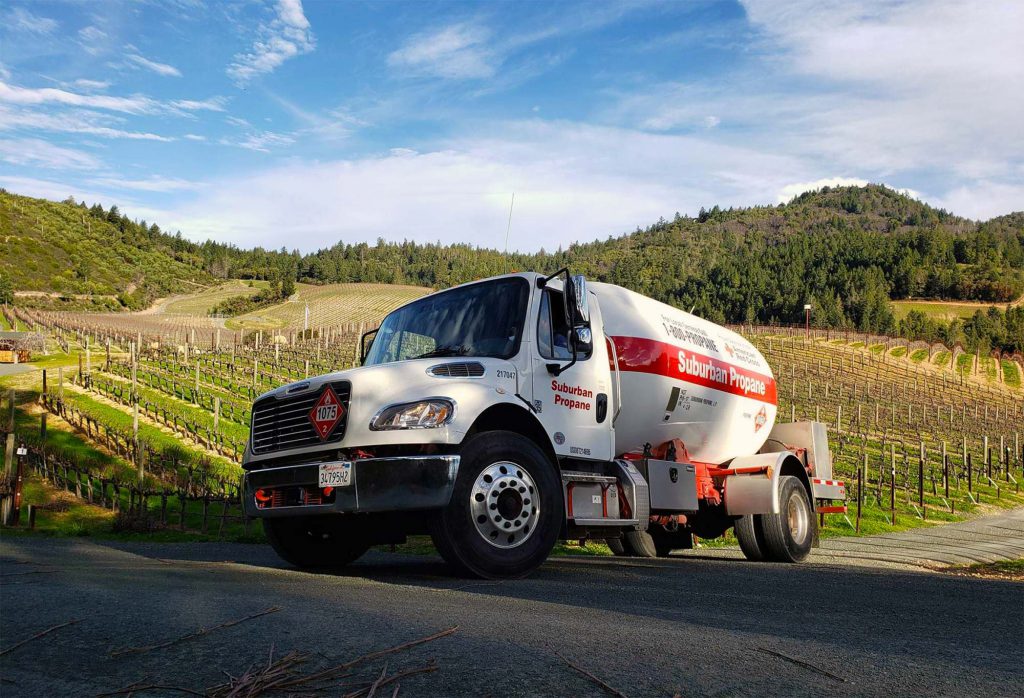
COMMUNITY
700+
Locations providing exceptional service to local communities across 42 states
EXPERIENCE
95+
Years serving our customers and their communities. Customer satisfaction since 1928
CUSTOMER SERVICE
3,300+
Dedicated employees ready to assist you with quality service for all your fuel needs
RELIABILITY
24/7/365
We are here for you with customer service representatives standing by to take your call
Please call us 24/7/365 at 1-800-PROPANE
